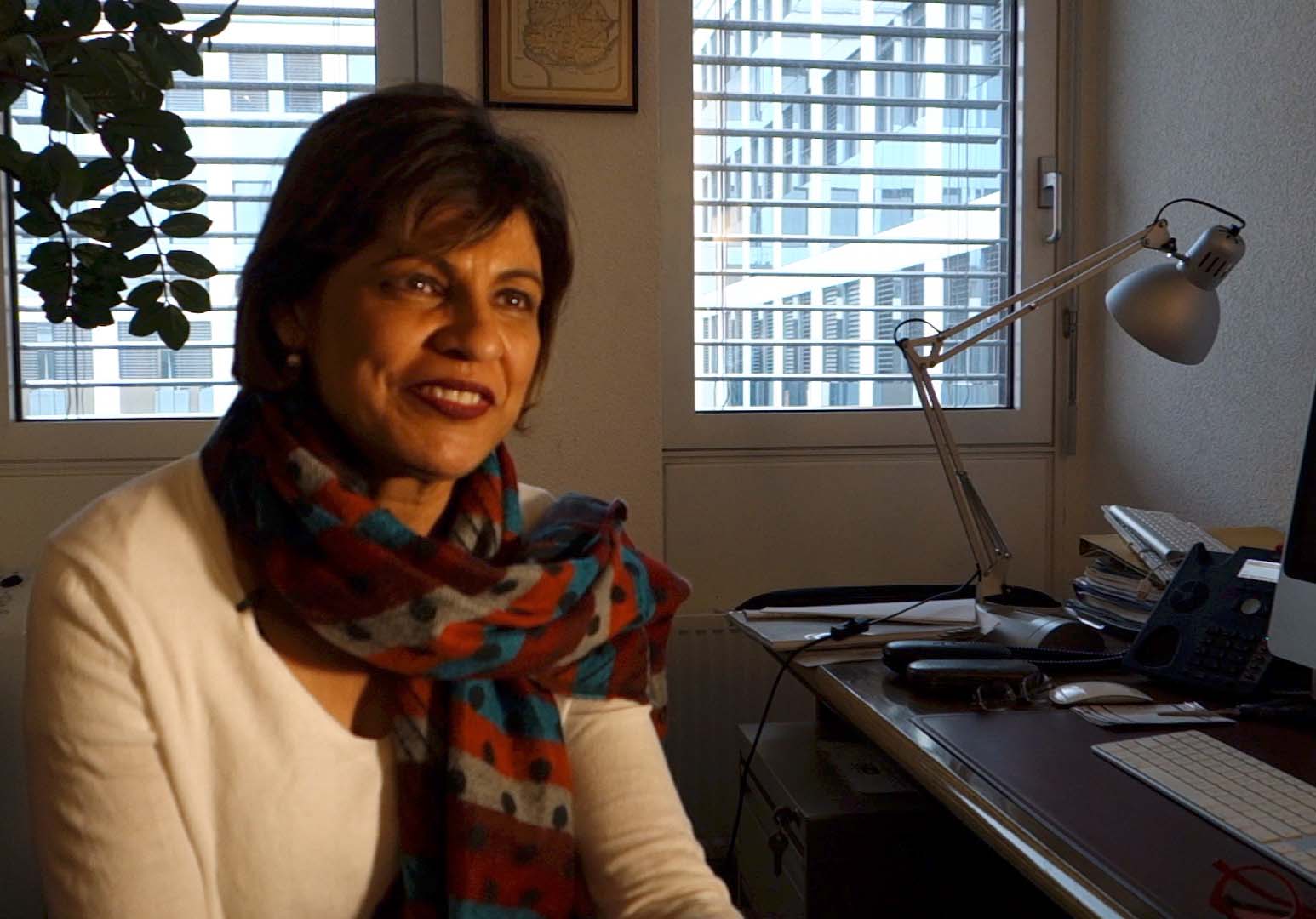The ICJ continues its series of women’s rights defender profiles with an interview with Imrana Jalal, an ICJ Executive Committee member, focussing on her motivations for women’s rights work.
Imrana Jalal is a human rights lawyer and gender specialist at the Asian Development Bank in Manila. She was a co-founder of the Fiji Women’s Rights Movement, which in November 2017 will be thirty years old. Imrana drafted and helped negotiate the passage of the groundbreaking Fiji Family Law Act, which took twelve years to pass, and which has since been emulated around the Pacific Islands.
In the interview, Imrana spoke of her engagement with women’s rights as something that arose from a sense of injustice she felt from childhood. Growing up in a Muslim family in Fiji she was told from an early age she was not allowed to do some things that her brother and male cousins could do and this motivated her to want to change things.
However, despite the family constraints she felt at an early age, Imrana commented that her commitment to feminism can be attributed to her father, a devout Muslim who came from a poor family and had only been educated until he was 13 years old, who really believed in girls’ education as a fundamental tenet of Islam.
Ms Jalal explains that, in her opinion, it is necessary to work within religious frameworks, despite issues of inherent patriarchy, because otherwise there is a risk of excluding millions of women from any kind of life based on equality.
After Imrana read a UNFPA report, Sexual and reproductive health of young people in Asia and the Pacific, which found that in Timor Leste 81% of teenage girls believed that a husband is justified in beating his wife for at least one reason, she asked herself what the women’s rights movement had been doing wrong after twenty years of educating people about violence against women?
She said that “one key issue is that we have stayed away from the social norms, the cultural norms for fear of being accused of racism or cultural superiority. … We have to engage with the churches, the mosques, and the temples… It means engaging with the most conservative institutions in society to try and get them to pass that message across.”
Imrana considers that in the area of family law some progress has been made but this has been slower and harder to realize than progress in other areas that affect women’s equality. She thinks that family law has been hard to address because it is based on the premise that women have an equal right to property and this directly confronts social norms.
“We have been more successful at changing domestic violence laws and sexual assault laws than we have family laws because there are some really entrenched views about women’s role in the family and land rights. It is really hard. I guess it is one of the last frontiers in many ways,” says Ms Jalal.
The Fiji Family Law is a progressive law that Imrana drafted as Commissioner for Family Law. 83% of the land in Fiji is native land, which cannot be alienated, so when a husband and wife separate a judge cannot rule that the land be sold and divided between parties. One of the innovative provisions Imrana introduced stated that where land is held under native laws, the husband, his family, or mataqali (a Fijan clan or landowning unit) has to compensate the woman to the extent of its value had it been commercially available land.
Looking back over her career, Imrana described herself as an “angry feminist” in her twenties, raising awareness of girls and women around her but not really getting anywhere with changing things. In her thirties and forties, she said she became smarter about how to do things. She realized she would have to sit across the table from politicians whose views and ideas she didn’t particularly like and negotiate with them.
Imrana explained that women’s rights have “defined my whole life. It’s made my life difficult but it has also made it a really wonderful satisfying life.”
For those young people looking to start a career in human rights, Ms Jalal, recommends that they find a passion and commit to this but make time to develop relationships with those around them as these are essential when the work is particularly challenging. Young women, and of course young men, can get involved by finding relevant organizations to join and ways to work with other like-minded people.
Watch the interview:
The series of profiles introducing the work of ICJ Commissioners and Honorary Members on women’s rights was launched on 25 November 2016 to coincide with the International Day to Eliminate Violence against Women and the first day of the 16 Days of Activism Against Gender-Based Violence Campaign.




